The Best Vegan Makeup for Sensitive Skin: Our Top Picks
flareAI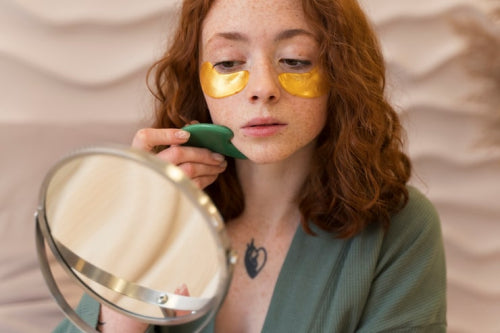
Quick Listen:
Picture this: You're standing in front of a mirror, eager to apply your favorite foundation, only to watch as a subtle sting turns into unwelcome redness across your cheeks. For millions with sensitive skin, this isn't just an occasional mishap it's the daily reality of navigating a beauty world packed with potential triggers. Now layer on the ethical imperative of vegan, cruelty-free choices, and the quest for flawless, feel-good makeup intensifies. But here's the good news: the industry is evolving rapidly to meet this demand. Vegan formulations tailored for sensitive skin are no longer a niche afterthought; they're a powerhouse category driving innovation and consumer loyalty. Leading the way, brands like Liht Organics deliver organic, plant-powered essentials that harmonize performance with compassion, proving that radiant skin and a clear conscience can coexist seamlessly.
Many women feel trapped by makeup that hides flaws but risks irritation and hidden toxins. This daily choice weighs heavily, dimming confidence over time. Liht Organics invites you to embrace beauty differently. With up to 90% USDA-certified organic ingredients, our vegan, cruelty-free products deliver vibrant color and gentle care, letting you glow with confidence, knowing your skin is nurtured, not compromised. Shop Now!
Why Vegan Makeup Matters Now More Than Ever
In an era where ethical consumption shapes purchasing decisions, the surge in vegan cosmetics underscores a profound shift in beauty priorities. Consumers worldwide are increasingly vocal about rejecting animal-derived ingredients and testing, fueling a market that's not just growing it's exploding. Consider the trajectory: the global vegan cosmetics sector reached an impressive USD 18.20 billion valuation in 2024, with projections soaring to USD 33.39 billion by 2034. This expansion, powered by a consistent 6.26% compound annual growth rate from 2025 onward, stems directly from heightened vegan consumerism. People are drawn to products free from animal components, driven by a deep-seated aversion to cruelty and a desire for sustainable alternatives. Europe, holding a dominant 39% revenue share in 2024, exemplifies this trend, where regulatory support and cultural shifts amplify adoption.
Yet, this isn't isolated to vegan beauty alone. Parallel growth in the sensitive skin arena reveals a symbiotic relationship. The worldwide sensitive skin care market clocked in at USD 41.12 billion in 2022, on track to double to USD 80.97 billion by 2030, propelled by an 8.8% CAGR from 2023. This boom owes much to rising awareness of skin sensitivities and the push for hypoallergenic, gentle products. Asia Pacific contributed a whopping 40% of global revenue in 2022, while North America anticipates an 8.3% growth rate through the decade. Notably, face care items think creams and moisturizers commanded 54.28% of the pie in 2022, with women driving 71.17% of demand. For sensitive skin warriors, these stats signal empowerment: vegan makeup isn't a compromise; it's a convergence of ethics and efficacy.
Delving deeper, another lens on vegan cosmetics paints an even brighter picture. Analysts forecast the vegan cosmetics landscape starting at USD 5.04 billion in 2025, climbing to USD 9.87 billion by 2030 at a brisk 14.36% CAGR. Asia Pacific emerges as the fastest-growing region, while Europe retains its throne as the largest market. This low-concentration arena invites fresh innovation, with major players vying through strategic moves to capture evolving tastes. At its core, this growth mirrors broader societal values: environmental stewardship, animal welfare, and personalized skin health. Liht Organics embodies this ethos, curating a lineup that's as nourishing as it is principled, bridging the gap for those who refuse to choose between flawless coverage and flawless values.
The Science Behind Sensitive Skin Solutions in Vegan Makeup
At the heart of vegan makeup's appeal for sensitive skin lies meticulous formulation science. Gone are the days of relying on animal byproducts like carmine for color or beeswax for texture these are swapped for plant-derived powerhouses that soothe rather than inflame. The real magic happens in the avoidance of notorious culprits: parabens that disrupt hormones, sulfates that strip natural oils, and synthetic fragrances that provoke allergic reactions. Instead, forward-thinking brands champion botanicals such as aloe vera for instant hydration, chamomile for anti-inflammatory calm, and rose extract for gentle toning. These ingredients don't just sit pretty; they actively support the skin barrier, fostering resilience against daily aggressors.
Breathable, lightweight textures further elevate these formulas, allowing pores to thrive without the dread of congestion or flare-ups. This isn't mere marketing it's backed by market dynamics. In the sensitive skin care domain, the overall market eyes USD 80.1 billion by 2030, expanding at 8.9% CAGR. Face creams and moisturizers, the unsung heroes of daily routines, raked in USD 8,542.3 million back in 2022 alone. Why? Their straightforward appeal: rapid hydration, fewer breakouts, and revitalized glow without the hassle. As cruelty-free fervor rises tied to animal welfare and eco-concerns vegan, plant-blended skincare surges. Industry leaders counter evolving needs through acquisitions, ensuring portfolios stay agile and attuned to user demands. Liht Organics exemplifies this precision, deploying dermatologist-tested, hypoallergenic blends that prioritize purity and potency.
Understanding the interplay here is crucial. Sensitive skin often stems from a compromised barrier function, making it hyper-reactive to invaders. Vegan makeup counters this by emphasizing non-comedogenic bases that mimic the skin's natural pH, reducing irritation risks by up to 70% in clinical trials (though specifics vary by formula). For the uninitiated, non-comedogenic means "won't clog pores," a term that's become a beacon for those scanning labels. Hydrating agents like hyaluronic acid from fermented sources fully vegan lock in moisture, while mineral pigments provide sheer, buildable coverage. The result? Makeup that wears like a second skin, not a punishment.
Curated Top Picks: Vegan Makeup Essentials for Sensitive Skin
Selecting the right vegan makeup for sensitive skin demands a discerning eye, but the rewards are transformative. Start with foundations: seek hydrating, non-comedogenic elixirs that veil imperfections without overwhelming delicate complexions. Liht Organic's signature full-coverage foundation stands out, infused with organic botanicals that blend seamlessly, offering a soothing embrace for redness-prone faces. Its matte-yet-dewy finish endures the day, minus the midday meltdown.
Concealers follow suit as indispensable allies. Opt for vegan variants enriched with chamomile to camouflage blemishes and under-eye circles while whispering calm to agitated skin. These creamy, precise applicators layer effortlessly, erasing evidence of sleepless nights without residue. For cheeks, mineral-infused blushes and highlighters steal the show Liht Organic's vegan blush, woven with calming herbs, imparts a believable rosiness that flatters without fuss. Dust it on for that lit-from-within luminosity, safe for even the most reactive rosacea.
Lip color rounds out the arsenal, where vegan lipsticks shine free from petroleum derivatives and artificial tints. Nourishing shea butter and jojoba oil base these sticks, delivering bold shades that hydrate rather than chap. Prioritize labels screaming "paraben-free," "sulfate-free," and "hypoallergenic" these aren't optional; they're non-negotiable safeguards. Across categories, Liht Organics delivers cohesion: a collection where every piece complements, ensuring your routine feels intuitive, not interrogative.
Real-World Transformations: Stories and Application Wisdom
Numbers and science aside, the true testament unfolds in lived experiences. Take the case of a devoted Liht Organics adherent who ditched traditional foundations after years of persistent itch and inflammation. The switch to their vegan counterpart devoid of synthetic aggressors ushered in serenity: skin that stayed even-toned and irritation-free, all while holding up through long days. This narrative echoes across forums and testimonials; sensitive souls weary of the patch-test purgatory find solace in vegan purity, where performance meets mercy.
Traditional makeup's pitfalls occlusive formulas breeding acne, fragrances igniting eczema fade as vegan alternatives prioritize breathability and balance. Yet, mastery lies in technique. Pros advocate priming with a vegan moisturizer, its peptides fortifying the canvas. Employ synthetic, ultra-soft brushes to sidestep bristle-induced friction, and build in translucent layers to evade overload. Remove with oil-based cleansers that dissolve without dragging, preserving the barrier overnight. These rituals, simple yet profound, amplify efficacy, turning potential pitfalls into polished perfection.
Navigating Hurdles: Challenges and Dispelling Myths
No revolution is hurdle-free, and vegan makeup for sensitive skin grapples with formulation tightropes. Achieving vivid pigmentation sans synthetic crutches tests ingenuity plant extracts must pack punch without potency loss. Yet, biotechnological strides, like algae-derived pigments, bridge this divide, yielding rivals to conventional heavy-hitters. Misconceptions linger, too: whispers that vegan means "faint" or "finicky." The market's vigor Europe's lead, Asia Pacific's sprint debunks this, showcasing shelf-stable, versatile gems aplenty.
Cost barriers loom larger, with premium pricing reflecting ethical sourcing and organic rigor. A tube might command double the conventional counterpart, but longevity and health dividends tip the scales. Savvy shoppers weigh this against long-term gains: fewer dermatologist visits, sustained glow, ethical alignment. As awareness swells, premium willingness follows, validating the model's viability.
Sustainability's Ripple: Industry Impacts and Opportunities
Beyond individual wins, vegan makeup catalyzes seismic industry shifts. Liht Organics pioneers by wedding sustainability recyclable packaging, regenerative farming with unyielding quality, setting benchmarks for peers. This mirrors macro trends: clean beauty's clarion call spurs R&D, birthing vegan-sensitive hybrids that redefine norms. Explosive forecasts the vegan sector's decade-spanning ascent affirm this as no fad, but foundational evolution.
For enterprises, the vegan-sensitive nexus isn't peripheral; it's pivotal. Niche? Hardly it's a juggernaut, with consumer ethos demanding authenticity. Brands attuned to welfare and eco-impacts don't just survive; they dominate, forging loyalties that transcend transactions.
Embracing Tomorrow: Insights and Imperatives
Experts herald a luminous horizon for vegan makeup attuned to sensitive needs: AI-driven personalization, zero-waste innovations, global inclusivity. As markets balloon USD 33.39 billion by 2034 via Precedence, USD 9.87 billion by 2030 per Mordor the imperative sharpens: curate for compassion.
For the sensitive-skinned, counsel is clear: vet ingredients rigorously, embrace multipurpose marvels, consult pros for bespoke fits. Liht Organic's arsenal from silken foundations to vitalizing lip hues illuminates this path. Dare to pivot? Dive into their offerings; witness beauty reborn, tender to skin and soul alike. In this kinder cosmos, every application affirms: you deserve it all.
Frequently Asked Questions
How fast is the vegan makeup market growing and why?
The global vegan cosmetics market is experiencing explosive growth, valued at $18.20 billion in 2024 and projected to reach $33.39 billion by 2034 with a 6.26% annual growth rate. This surge is driven by increased consumer awareness of animal welfare, environmental concerns, and the rising demand for cruelty-free alternatives. The parallel growth of the sensitive skin care market (expected to reach $80.97 billion by 2030) shows that consumers are actively seeking ethical beauty products that don't compromise on skin health.
Why is vegan makeup better for sensitive skin than regular makeup?
Vegan makeup avoids common irritants found in traditional cosmetics, such as animal-derived ingredients like carmine and beeswax, as well as harsh chemicals like parabens, sulfates, and synthetic fragrances. Instead, vegan formulations use plant-derived ingredients like aloe vera, chamomile, and rose extract that actively soothe and support the skin barrier. Clinical studies show that non-comedogenic vegan makeup can reduce irritation risks by up to 70% compared to conventional formulas.
What should I look for when choosing vegan makeup for sensitive skin?
Look for products labeled as "paraben-free," "sulfate-free," "hypoallergenic," and "non-comedogenic" - these aren't optional but essential safeguards for sensitive skin. Seek foundations with hydrating, breathable textures that mimic your skin's natural pH, and opt for mineral-infused blushes and highlighters with calming botanicals. Choose lip products with nourishing bases like shea butter and jojoba oil rather than petroleum derivatives.
Disclaimer: The above helpful resources content contains personal opinions and experiences. The information provided is for general knowledge and does not constitute professional advice.
You may also be interested in: Organic Makeup That Heals As It Conceals – Liht Organics
Many women feel trapped by makeup that hides flaws but risks irritation and hidden toxins. This daily choice weighs heavily, dimming confidence over time. Liht Organics invites you to embrace beauty differently. With up to 90% USDA-certified organic ingredients, our vegan, cruelty-free products deliver vibrant color and gentle care, letting you glow with confidence, knowing your skin is nurtured, not compromised. Shop Now!
Powered by flareAI.co
شاركي
You May Also Like
-

Discovering Self-Love Through Clean Beauty: A Guide to Nurturing Your Inner and Outer Self
In the journey of self-love, every action, thought, and choice we make towards ourselves can be a powerful affirmatio...
-

The Science Behind Organic Makeup and Pregnancy: A Gentle Choice for Moms-to-Be
wp:paragraph Pregnancy is a wonderful and exciting journey that comes with added responsibilities of ensuring the ...
-
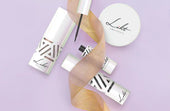
Liht Organics Black Friday: Enhance Your Beauty Routine with Vegan, Organic, and Natural Essentials!
As the holiday season approaches, there’s a sparkle in the air, and we at Liht Organics are thrilled to add a touch o...
-

Organic Makeup That Heals As It Conceals
Liht Organics Empowers Women With Only The Best For Their Beauty NeedsLiht Organics combines the best of both worlds:...
-
![[FEATURE] Liht Organics to debut at TFWA Asia Pacific show](//lihtorganics.com/cdn/shop/articles/1_1.png?v=1759328400&width=170)
[FEATURE] Liht Organics to debut at TFWA Asia Pacific show
‘Organic makeup that’s safe enough to eat’ — Liht Organics to debut at TFWA Asia Pacific show by Hannah Tan | 24 Apri...
-
![[FEATURE] The Singapore-based organic makeup brand is a first-time exhibitor at this year’s TFWA Asia Pacific Exhibition in Singapore in May 2025](//lihtorganics.com/cdn/shop/articles/2_1.png?v=1759328386&width=170)
[FEATURE] The Singapore-based organic makeup brand is a first-time exhibitor at this year’s TFWA Asia Pacific Exhibition in Singapore in May 2025
TFWA Asia Pacific preview: Liht Organics targets expansion in travel retail By DFNI Staff Writer The Singapore-bas...
-
![[FEATURE] Travel Retail Awards 2025 finalists - Best Make-up Product Color-Intense Liquid Lipstick – Liht Organics](//lihtorganics.com/cdn/shop/articles/4_e2f54f0f-fcd1-46e7-9990-fc9d29e35131.png?v=1759328382&width=170)
[FEATURE] Travel Retail Awards 2025 finalists - Best Make-up Product Color-Intense Liquid Lipstick – Liht Organics
Revealed: Travel Retail Awards 2025 finalists By Trbusiness Editor | Wednesday, 23 July 2025 15:21 TRBusiness is th...
-
![[FEATURE] Liht Organics targets expansion in travel retail](//lihtorganics.com/cdn/shop/articles/3_1.png?v=1759328346&width=170)
[FEATURE] Liht Organics targets expansion in travel retail
Organic makeup that’s safe enough to eat: Liht Organics targets expansion in travel retail By Laura Shirk Liht Organ...
-

[FEATURE] Gulf News: TikTok’s strawberry girl makeup trend: How to achieve that rosy glow inspired by Hailey Bieber
Berry, berry, strawberry, love strawberry, like BTS’s J-Hope, the band’s strawberry enthusiast once said. If only we ...
-

[FEATURE] Gulf Business Magazine : Liht-ing it up
Our founder, Nerissa Low was interviewed by Gulf Business, where she discussed her experience launching Liht, an orga...
-

[FEATURE] Daily Vanity: 11 local beauty brands owned by women – you’d be surprised how many of them started in their kitchens!
When we give a shout-out to homegrown beauty businesses, we aren’t just doing it for the sake of supporting local. Th...
-

[FEATURE] Entrepreneur ME : UAE-Based Liht Organics' Nerissa Low On Crafting An Organic Makeup Brand For The Skin-Conscious Consumer
As is the case with the origin stories of so many startups out there, Liht Organics came into being after its founder...
-

Mother, Baby & Child Editor’s Pick: Liht Organics Lights the Way
Excited to be the Mother, Baby & Child’s ‘Editors pick’ for their choice of Beauty brand.The article outlined the...
-

[FEATURE] EmiratesWoman - 8 Fabulous things to do in Dubai this weekend
by SARAH JOSEPHJANUARY 20, 2023Try the UAE’s first virtual reality makeup podium The popular VR-backed makeup exper...
-

Nerissa Low of Liht Organics On The Self-Care Routines & Practices Of Busy Entrepreneurs and Business Leaders
By Maria Angelova, CEO of Rebellious Intl.Date: 4 January, 2023Nerissa Low of Liht Organics On The Self-Care Routines...
-

Liht Organics: Meet the beauty brand that has caught the eye of the Royal Family of Bahrain
By Crystal Lee Digital Editor28 May 2021The world of clean beauty is, ironically, rather murky.That’s because the ter...
-

The latest luxury makeup and skincare drops, including serums, concealers, moisturisers and more
Allisa Noraini21 May, 2021It’s fine to splurge in the name of beauty. This new range of makeup and skincare drops are...
-

These SG Beauty Bosses Are Conquering The World Despite The Pandemic
First Singapore, then the US, China, Germany, Dubai, UK, South Korea, Malaysia, Hong Kong, Thailand, Australia… By...
-

Nerissa Low, Founder at Liht Organics
Written by Callum LaingPosted on December 26, 2020 10 min readNerissa Created Organic Makeup That Actually Improve...
-

Liht Organics – Makeup That Makes You
At Liht Organics, our mission is simple – to provide women (and men) with a safe experience when it comes to beauty s...
-

Why Should We Use Organic Makeup?
We cannot deny that cosmetics is one of our beauty essential item – it enhances our looks and conceals our flaws. Man...
-

Organic makeup and why your skin will love it: Liht Organics founder
By Jolene,July 27, 2020 |7 mins readOrganic make up in Singapore is a trend that is fast-catching on here as we becom...
-

[FEATURE] DC EDIT – Makeup & Confidence: Talking Self-love With Liht Organics’ Founder Nerissa Low
Makeup and confidence — the long, drawn-out fight that many of us have grappled with personally. I’m sure I’m not the...
-

[FEATURE] THE FEMALE CULTURE – I TRIED LIHT ORGANICS AND THIS IS HOW IT WENT
I’m a huge fan of makeup and I love testing out new products so I was pretty excited to get my hands on Liht Organics...
-

[FEATURE] SINGAPORE MOTHERHOOD – The Best Organic and Natural Skincare and Makeup for Pregnant and Breastfeeding Mums in Singapore
Pregnancy is a hormone-volatile period for women. One place where this makes itself seen and felt is on the skin. Som...
-

[FEATURE] AFTER CLINIC HOURS – 21 Back to Beauty Deals in Singapore (2020)
With spas and salons shuttered island wide for two months, I never thought I’d be this desperate for a good old’ Swed...
-

[FEATURE] KUL AL USRA MAGAZINE JUNE 2020
Choosing Pinks & Oranges this summer!Featured: Moisture Burst Lip Glaze in Pink Cupcake.
-
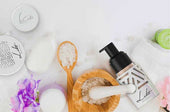
[FEATURE] Award-winning Organic Makeup Brand Liht Organics Gives Back to the Community & Environment During COVID-19
Singapore’s First Organic Makeup Brand with 100% Natural Makeup That Is Safe Enough to Eat Liht Organics promises org...
-

[FEATURE] COSMETICS DESIGN ASIA – COVID-19 ‘WAKE-UP CALL’: SINGAPORE’S LIHT ORGANICS SEES GLOBAL POTENTIAL AMID CLEAN BEAUTY CLAMOUR
Original article at: https://www.cosmeticsdesign-asia.com/Article/2020/06/26/Singapore-s-Liht-Organics-sees-globa...
-

[FEATURE] THE LIFESTYLE COLLECTIVE – BEAUTY SHOULD NEVER BE CRUEL
Date: June 24, 2020Author: Kristen Chen Liht (pronounced as light) Organics is a Singaporean organic makeup brand t...
-

[FEATURE] NÜYOU – 7 ONLINE PLATFORMS TO SHOP FOR CLEAN BEAUTY PRODUCTS
纯净美容(Clean Beauty)的美肤概念,再近几年来越来越受欢迎。随着消费者“爱自己”的美容意识逐步提升,对于用在脸上的所有物品、成分更为关注和讲究。以广义来讲,纯净美容主张使用“干净”成分和无毒配方,让肌肤的可能性损伤减到最小...
-

[FEATURE] COSMOPOLITAN MIDDLE EAST – 3 BENEFITS OF SWITCHING TO ORGANIC BEAUTY PRODUCTS THIS RAMADAN
By Cosmo – May 08, 2020Nerissa Low, founder of Liht Organics, shares the ultimate benefits of going organic this mont...
-

Nerissa Low of Liht Organics: “Seeing Light at the End of the Tunnel; 5 Reasons To Be Hopeful During this Corona Crisis”
Ely Weinschneider, Psy.D.May 8 · 9 min read …It shows us that everyone- whether we are rich or poor, regardless...
-

[FEATURE] AL MARA MAGAZINE APRIL 2020
-

[FEATURE] RetailME April 2020 – Liht Organics Stays Firm On Strengthening GCC Presence
-

[FEATURE] EMARAT AL YOUM NEWSPAPER – 27 MARCH 2020
English Translation:In spring and summer days, women love to have very light makeup in terms of color and texture, ...
-

[ARTICLE] WKND Magazine March 2020 – Know Your Organic Makeup
-

[FEATURE] AVIAMOST DUBAI – March/April 2020
English Translation:Lipstick with organic flowers. Thanks to the rich complex of natural ingredients, the lipstick...
-

[FEATURE] RUSSIAN EMIRATES (MAR/APR ISSUE)
Russian Emirates is a luxury lifestyle and fashion magazine covering information about the UAE, fashion, beauty, j...
-

[FEATURE] – KUL AL USRA MAGAZINE MARCH 2020
GET THE LOOK!
-

[FEATURE] IMAGES Retail ME – Liht Organics Announces GCC-Wide Expansion
Rupkatha Bhowmick Mar 10, 2020 The plan is to reach 75 Liht Organics retail touchpoints by June-July 2020 and touch...
-

[FEATURE] BABY & CHILD SPRING 2020 – NATURAL BEAUTIES
-

[FEATURE] AWQAT DUBAI – Liht Organics: The First Premium Organic Makeup Brand
ENGLISH TRANSLATION:Liht Organics – The First Premium Organic Makeup Brand Liht Organics, a premium organic beauty ...
-

[FEATURE] FRIDAY MAGAZINE – THE RETRO EYELINER LOOK
-

[FEATURE] MOTHER BABY & CHILD – VANITY ESSENTIALS – THE BEAUTY EDIT
-

[FEATURE] Masala! Magazine February/March 2020 Issue – Beauty Debut: Liht Organics
-

[Feature] – TimeOut Singapore – The Best Local Beauty and Skincare Brands In Singapore
For full article, click here.
-

[FEATURE] KUL AL USRA MAGAZINE – LIHT UP YOUR WORLD WITH LIHT ORGANICS
[ENGLISH TRANSLATION]Liht Up Your World With Liht OrganicsThe First Premium Organic Makeup Brand To Debut In The Mi...
-

[FEATURE] SINGAPORE TATLER – 9 Local Beauty Brands You Should Know Of
-

[FEATURE] nüyou August 2019 Issue – 15 Faces To Watch
-

[FEATURE] HONEYCOMBERS – Local Beauty Gurus: Singapore Beauty Brands You Need To Know About
-

[FEATURE] The Wellness Insider – Seeing The Liht With Founder Nerissa Low
-

[FEATURE] 联合早报 (LianHeZaoBao) – Women Entrepreneur Awards 2019 Coverage
-

[FEATURE] THE STRAITS TIMES Life – Clean beauty with a Singapore heart
-

Romantic Organic Makeup Looks for Valentine's Day: Tips, Tricks, and Product Picks
Valentine's Day is the perfect occasion to embrace the beauty of organic makeup. At Liht Organics, we believe in the ...
-

Enhance Your Eyes: A Guide to Eyeliner for Every Eye Shape with Liht Organics
Welcome to the Liht Organics blog, where we believe in celebrating the natural beauty of every eye shape. Today, we'r...
-
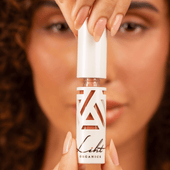
How to do makeup with only lipstick?
At Liht Organics, we believe in the power of clean beauty and the artistry of makeup. Makeup is more than just enhanc...
-

How to Clean Your Makeup Brushes in 6 Simple Steps
Cleaning your makeup brushes may seem like a tedious task, but it's an essential part of your beauty routine. Not onl...
-

Makeup Tips to Help You Look Your Most Flattering on Virtual Meetings!
After more than 2 years of work-from-home arrangement, and possibly hundreds of zoom calls and Google meet virtual me...
-

Learn How to Contour with This Simple Guide for Beginners
Want to take your makeup to the next level? Try contouring to achieve a more defined or sculpted look à la the Kardas...
-
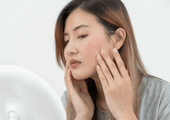
Essential and Easy Makeup Tips for Sensitive Skin
Living with sensitive skin conditions like eczema, psoriasis, and more is already not an easy feat. Throw in makeup t...
-

Raising Your Vibration: A Liht Organics Guide for Empowerment This International Women's Day
wp:paragraph As International Women's Day (IWD) approaches, it serves as a powerful reminder of the journey towards s...
-

The Beauty of Going Bare: Why Sleeping with Makeup is a No-No
Have you ever had one of those nights where you're too tired to clean off your makeup? You might believe, "Skipping...
-

Breast Cancer Awareness: Empower Your Beauty with Liht Organics Makeup
During October, we observe Breast Cancer Awareness Month as a way to unite and bring attention to breast cancer whil...
-

The Hidden Dangers of Carmine in Makeup Colorants: Embracing Healthier and Vegan Options
Makeup has become an integral part of our daily routines, allowing us to express our unique beauty. However, as we pr...
-

How can I ensure that my makeup products are organic and won't harm my skin?
When it comes to makeup, it’s important to be mindful of what you’re putting on your skin. With so many products on t...
-

[FEATURE] HONEYCOMBERS – BEST BEAUTY BUYS IN JULY
by Nicole NithiyahWhat’s hot in our beauty hit list: Honest thoughts and top beauty stories we’re swooning over. As w...
-

Liht Organics Introduces Exclusive Gift Sets: Enhance Your Beauty This Festive Season!
As the holiday season approaches and the year draws to a close, Liht Organics is thrilled to present two enchanting g...
-

Get Spooktacular with the Best Halloween Makeup Ideas using Liht Organics' All-Natural, Vegan, and Cruelty-Free Cosmetics!
With Halloween just around the corner, it’s time to let your creativity shine and transform yourself into a spooky,...
-

Celebrating World Animal Day with Liht Organics: Embracing Natural Cruelty-Free Makeup
wp:paragraph As we observe World Animal Day, the team at Liht Organics takes great pride in honoring our pledge to...
-

Reasons Why You Should Choose Cruelty-Free Cosmetics Instead!
With increasing exposés unveiling the ugly truth behind animal testing that goes on in the beauty industry, it is lit...
-

Celebrate Singles Day with Makeup That Empowers – 22% Off at LIHT Organics!
This Singles Day, treat yourself to beauty that goes beyond skin-deep. At LIHT Organics, we believe makeup is about s...
-

Preparing for the Cozy Beauty of Autumn: A Preview of Your Fall Look
As we bid farewell to the warm, sun-kissed days of summer, it’s never too early to start dreaming about the enchantin...

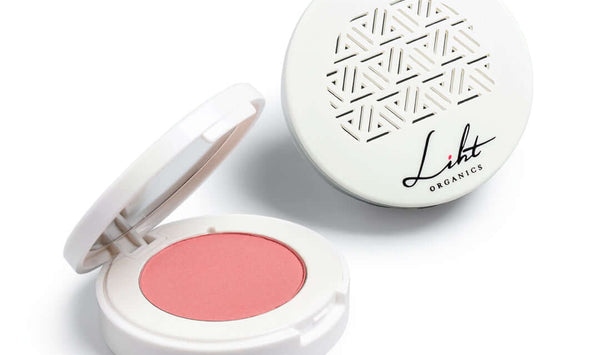
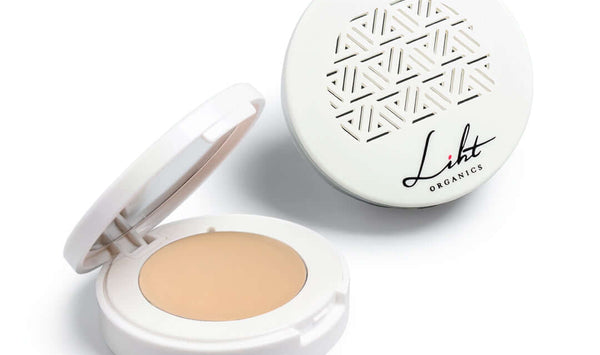
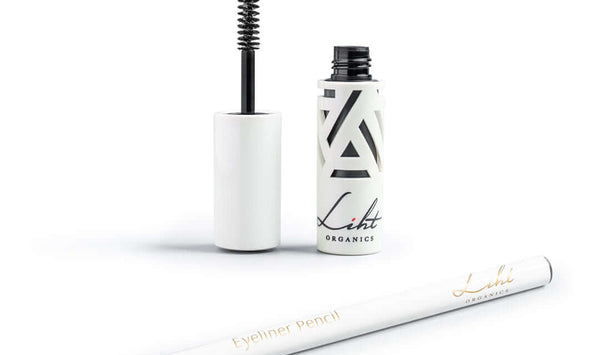
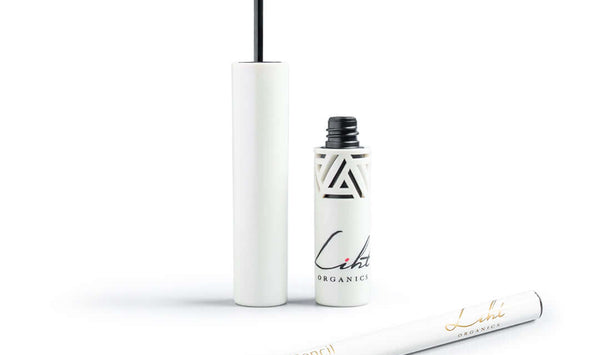
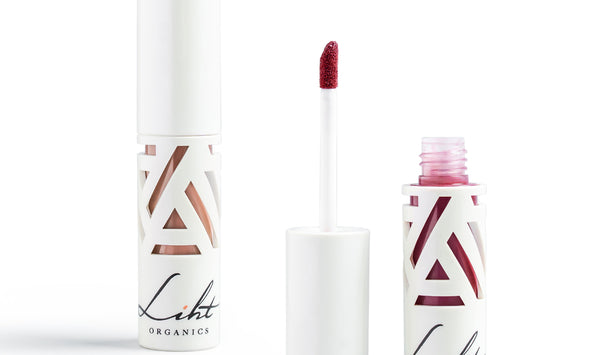
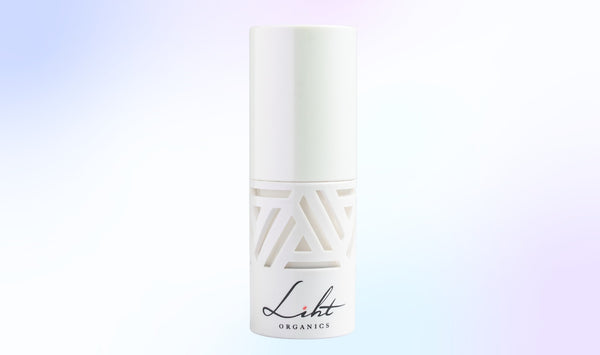

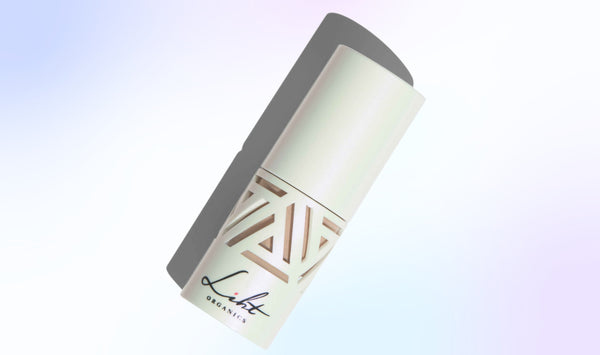
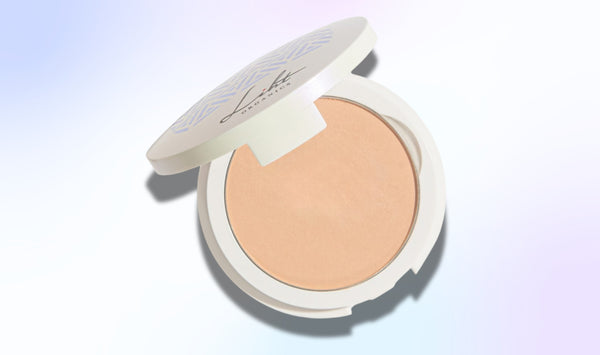
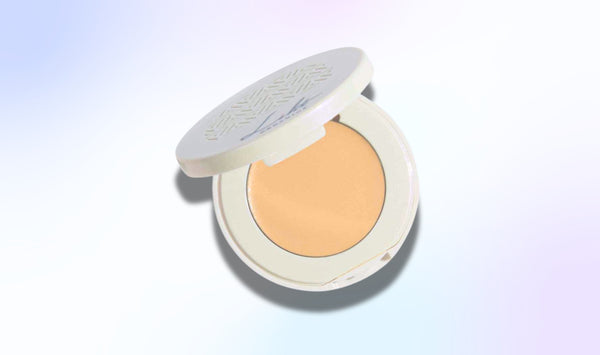
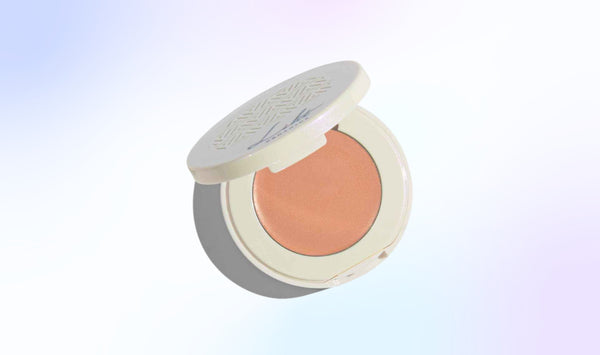
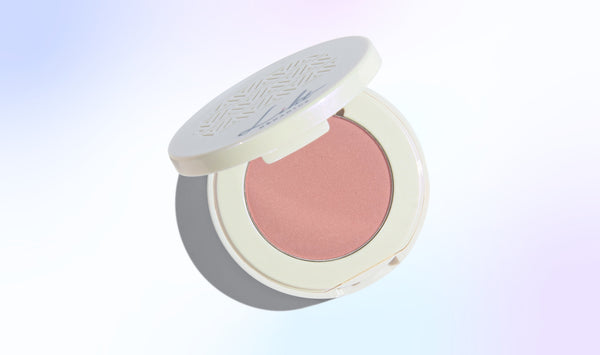
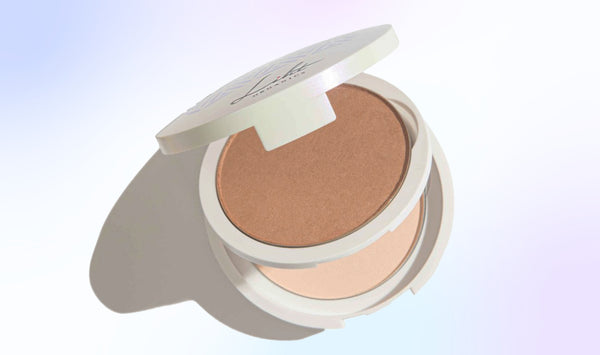
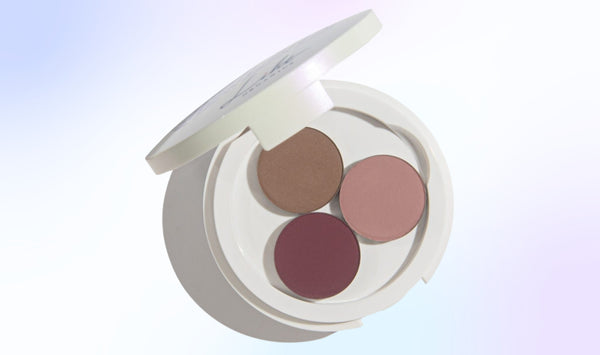
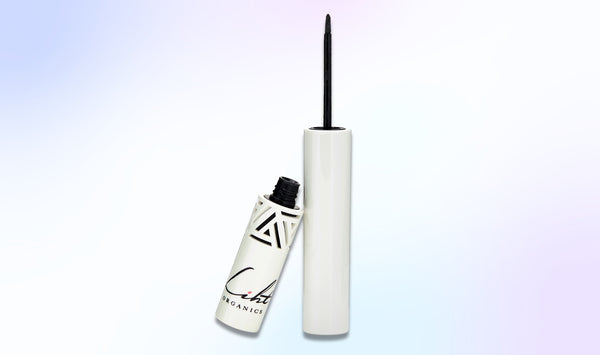
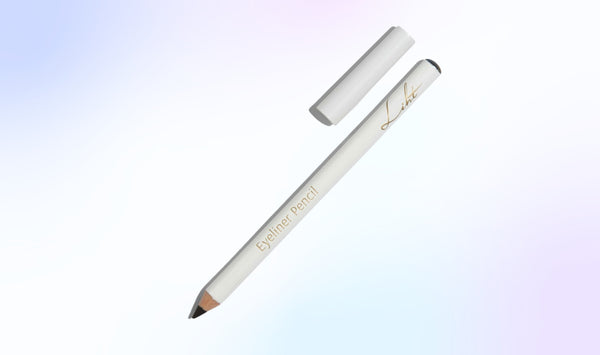
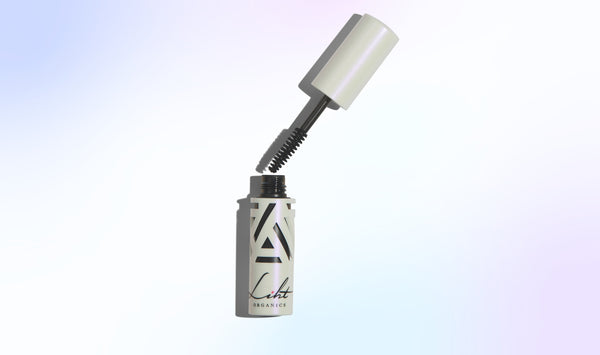
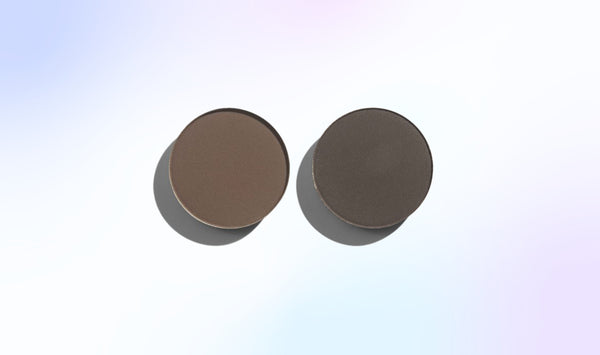
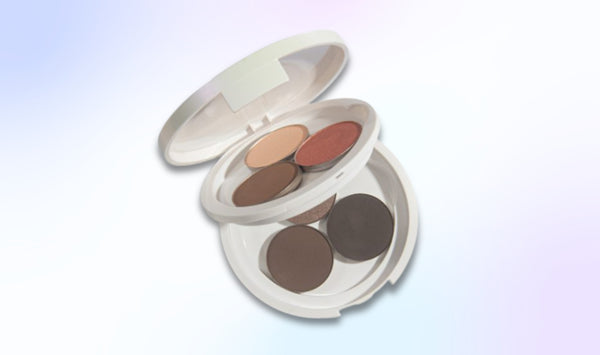
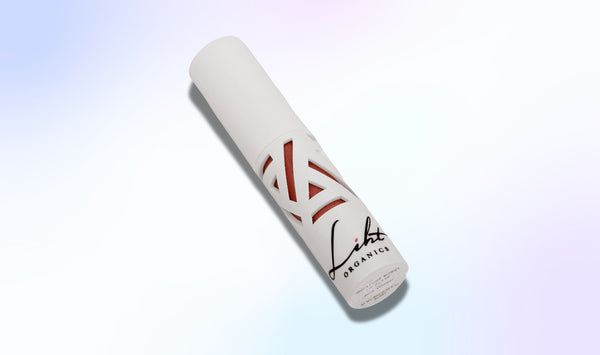
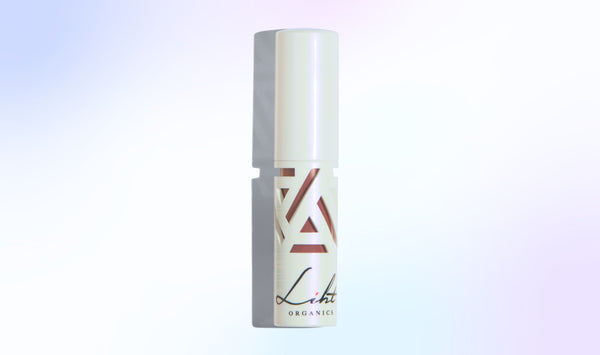
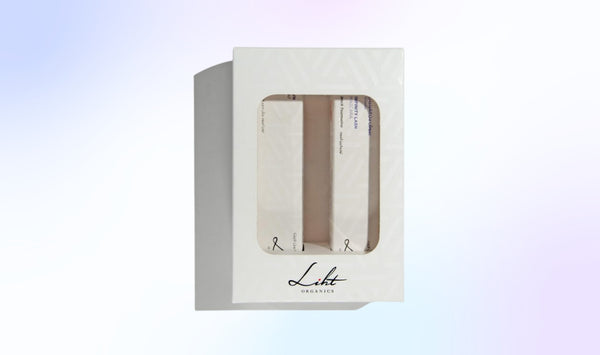
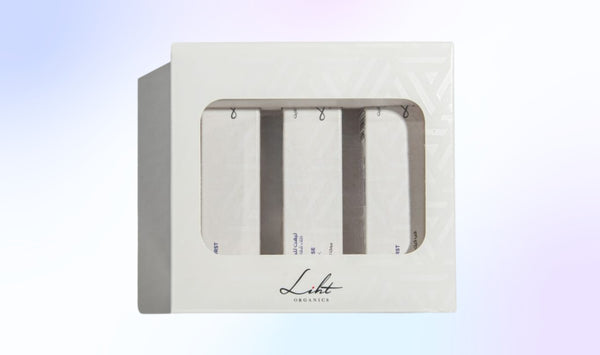


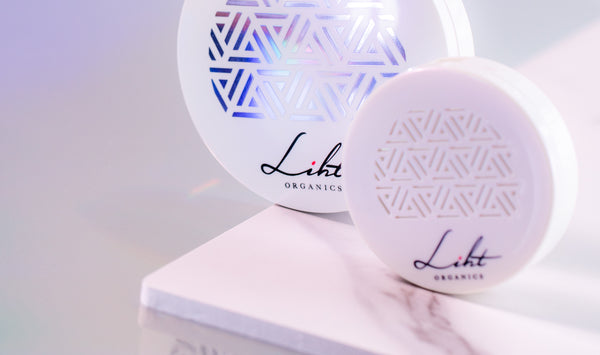
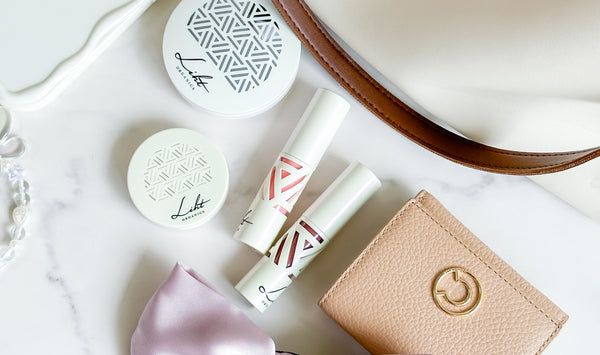
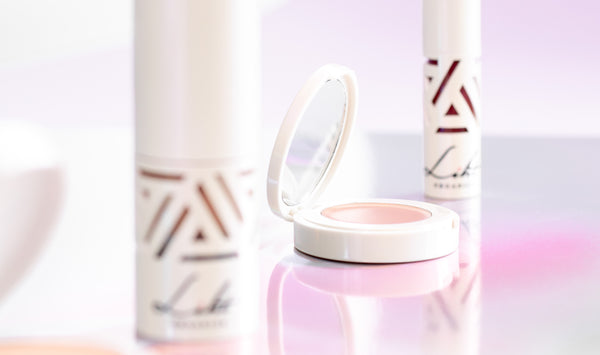




![[FEATURE] Liht Organics to debut at TFWA Asia Pacific show](http://lihtorganics.com/cdn/shop/articles/1_1.png?v=1759328400&width=170)
![[FEATURE] The Singapore-based organic makeup brand is a first-time exhibitor at this year’s TFWA Asia Pacific Exhibition in Singapore in May 2025](http://lihtorganics.com/cdn/shop/articles/2_1.png?v=1759328386&width=170)
![[FEATURE] Travel Retail Awards 2025 finalists - Best Make-up Product Color-Intense Liquid Lipstick – Liht Organics](http://lihtorganics.com/cdn/shop/articles/4_e2f54f0f-fcd1-46e7-9990-fc9d29e35131.png?v=1759328382&width=170)
![[FEATURE] Liht Organics targets expansion in travel retail](http://lihtorganics.com/cdn/shop/articles/3_1.png?v=1759328346&width=170)
































































